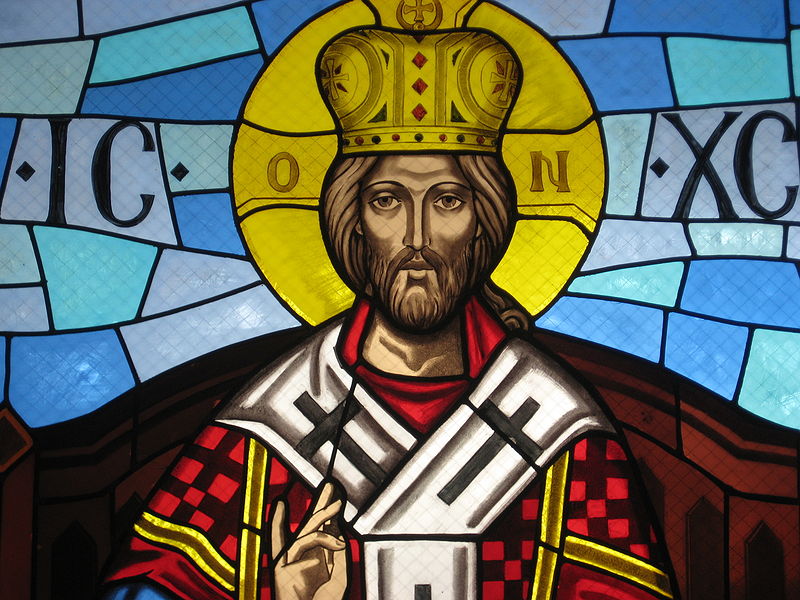The Solemnity of Our Lord Jesus Christ, King of the Universe
Lectionary: 162
2 Sam 5:1-3
PS 122:1-2, 3-4, 4-5
COL 1:12-20
LK 23:35-43
The feast of Christ the King comes at a good time, as this nation is still reeling after the surprise election of Donald Trump. Christ the King is a recent feast, entering the calendar in 1925 in response to rise of secular autocrats in Europe. The goal of the feast is to remind the faithful that Christ, not the State or any other worldly authority, ought to reign sovereign in our “hearts, minds, wills, and bodies” and to remind the leaders of nations to respect Christ and grant his church immunity from the state.
While we aren’t necessarily dealing with a secular autocrat, we do, as a nation and church, need redirection towards the goals of this feast. Here are three reflections we can bring with us as we celebrate Christ the King 2016;
1. All political authority is grounded in the authority of Christ: I was reading yesterday about Rahm Emmanuel insisting that Chicago would always remain a sanctuary city, that is a city that does not cooperate with federal immigration authorities. President-elect Trump has indicated in his 100 day plan that he intends to cut federal funding from such cities. As Catholics debate this issue, we are reminded on Christ the King that just because something is a law does not make it just. The authority of the government to enforce laws is rooted in the justice of that law. Martin Luther King Jr. famously quoted this dictum in his “Letter from a Birmingham Jail” at a time when the laws were certainly far from just. We need to be open to challenging other such unjust laws that either exist or may come into existence over the next four years.
2. Salvation does not consist in political liberation: Our first reading from 2 Samuel 5 has a subtle reminder of the limitation of the Israelite monarchy. Though God finally concedes to the people’s wish for a king, it is only with reluctance as the people are unable to accept God’s ultimate sovereignty and desire to be a king like the other nations. But as David, the great king, is anointed.the people are remind that it was God “who led the Israelites out and brought them back.” Our second reading expands God’s liberation beyond the nation of Israel and beyond political liberation: “He has delivered us from the power of darkness and transferred us to the kingdom of his beloved Son, in whom we have redemption and the forgiveness of sins.”
3. The kingdom of God is marked by mercy: The scene in this Sunday’s gospel is a beautiful and powerful reminder of what foundation Christ’s kingdom is built. On the cross, dejected and abandoned, Jesus is mercilessly mocked. The so-called “good thief” defends Jesus: “Have you no fear of God, for you are subject to the same condemnation?” He then turns to Jesus “Remember me when you come into your kingdom.” Jesus responds, “Today you will be with me in paradise.”
Mercy is critical right now, towards those who voted differently from us and for those whose response the political situation is different from our own, but also, and most importantly towards those who are most vulnerable in our political situation.
On this Christ the King we remember that this is not our kingdom, but the one that we are ultimately subject to is breaking into this world. The way we act as subjects in this kingdom ought to make that manifest.


